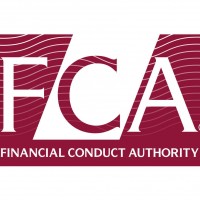
Overall the group received income of £600.3m, while operating costs came in at £547.2m
The regulator’s surplus was largely thanks to an improvement in the funding of the group’s final salary pension scheme.
The FCA also received more in fines and penalties than it spent on activities.
Over the year, the regulator issued 16 financial penalties totalling £69.9m.
And the FCA authorised 10 new banks, including banks providing SME finance, business banking and consumer lending, as well as overseas banks establishing branches in the UK.
This surplus has resulted in an improvement to the group’s net deficit position to £87.3m
The FCA last year recorded a £9.2m loss.
Operating costs
The largest cost for the regulator over the year was staff pay, which came in at £321.6m.
Training, recruitment and wellbeing cost the FCA another £11.8m
In the year 77% of all FCA employees received a pay award and only 9% of the staff did not receive a bonus.
The majority of staff received a bonus equivalent to 10-14.9% of salaries.
But executive board members and senior executives were eligible for performance-based bonuses of up to 35% of salaries.
The report showed a quarter of staff were awarded a bonus equivalent to between 20-35% of salaries.
Chief executive Andrew Bailey’s total remuneration came in at £589,000, up from £449,00 from the year earlier.
His bonus award was at £75,000 for 2017/18, part of this will be deferred and will not be paid until next year.
Bailey donated the portion he has already received for 2017/18 to the regulator’s two staff charities, Richard House and the Alzheimer’s Society, according to the FCA.
Executive director of strategy and competition Christopher Woolard’s total remuneration was £409,000, unchanged from the previous year.
IT costs of £75.9m were the second biggest operating outgoing, while professional fees came in at £45.6m.
Ongoing regulatory activity fees provide the bulk of the FCA’s income at £508.9m
Key pieces of work
The FCA said three areas stood out as defining its work, including Brexit preparation, regulatory changes and treating customers fairly.
Andrew Bailey, chief executive of the FCA said: “While this annual report illustrates the wide range of our activities, there are three key areas that particularly define our work this year.
“The first is our work to prepare for the UK’s withdrawal from the EU.
“The second is regulatory change: this year we have applied legislation which will have profound implications for firms’ transparency, the way they treat consumers and in some cases even their business models.
“This has included MiFID II, the second Payment Services Directive and preparing for the extension of the Senior Managers and Certification Regime to all firms.
“And the third area is ensuring that firms treat consumers fairly. Our work this year has sent a clear message to firms that, if they do not treat customers fairly, then we will take action.”
Charles Randell, chair of the FCA said: “This annual report shows that keeping pace with the depth and breadth of developments in financial services can be a challenging balancing act.
“We must act swiftly and decisively to tackle harm to consumers, particularly the most vulnerable.
“In the process, we have to make some difficult choices, learn from what works and what doesn’t – and be open about both.”















